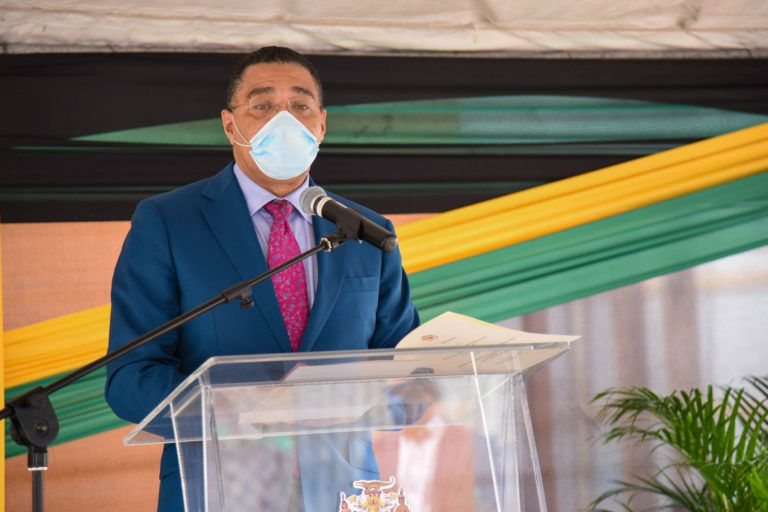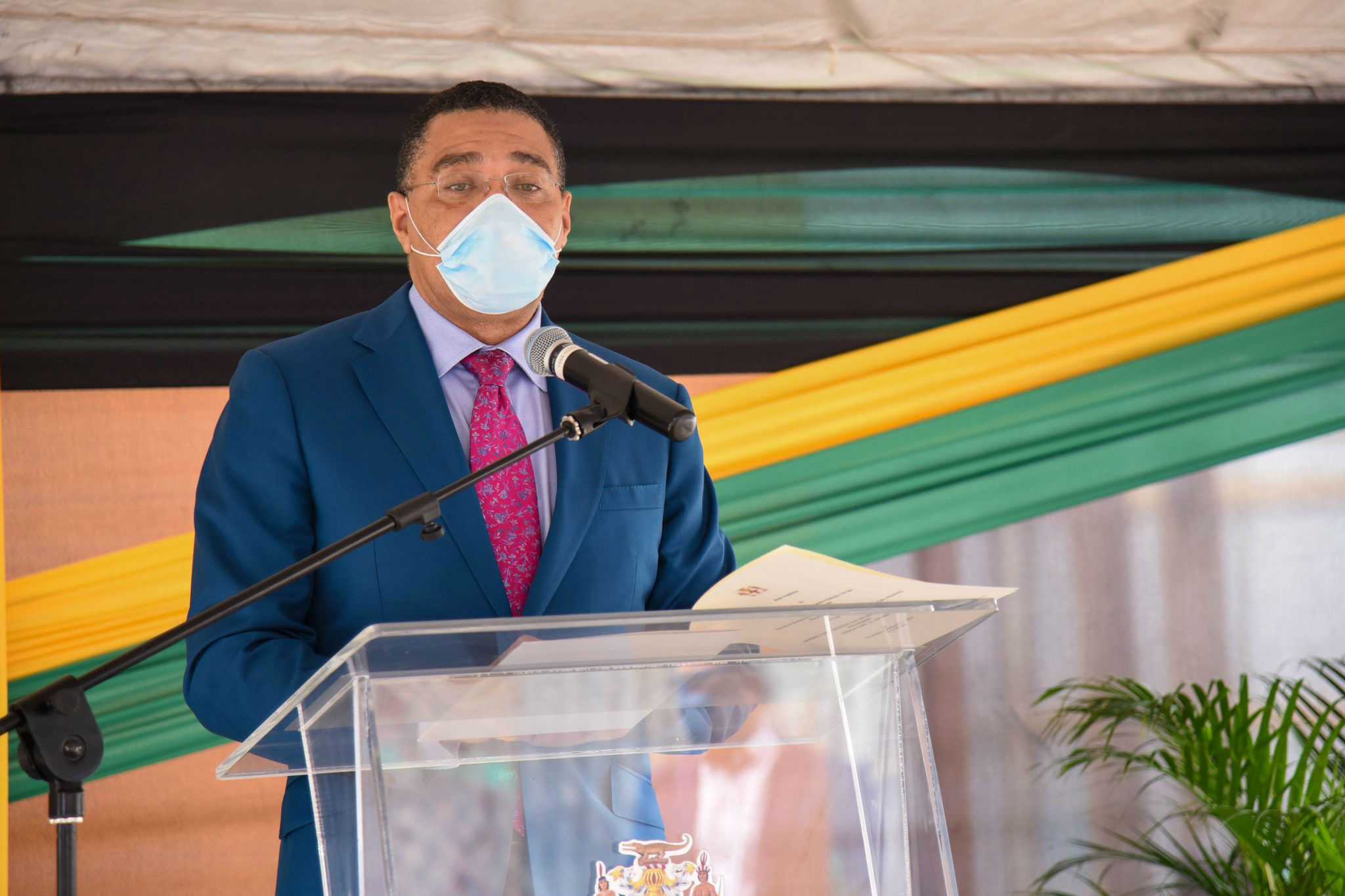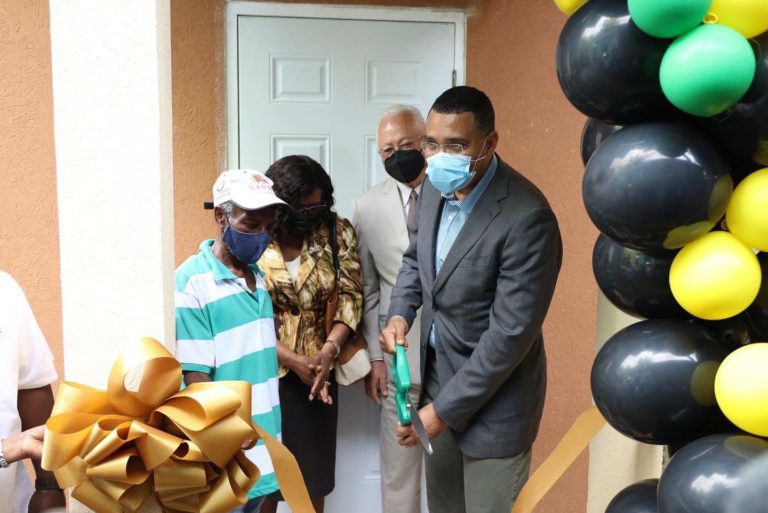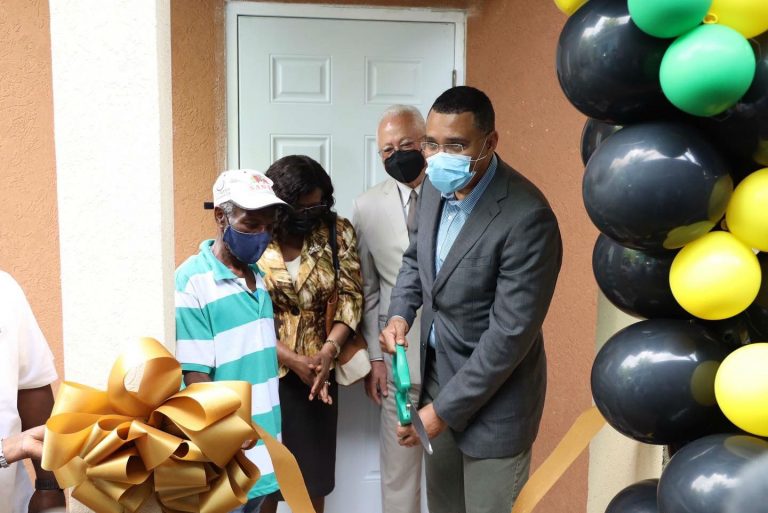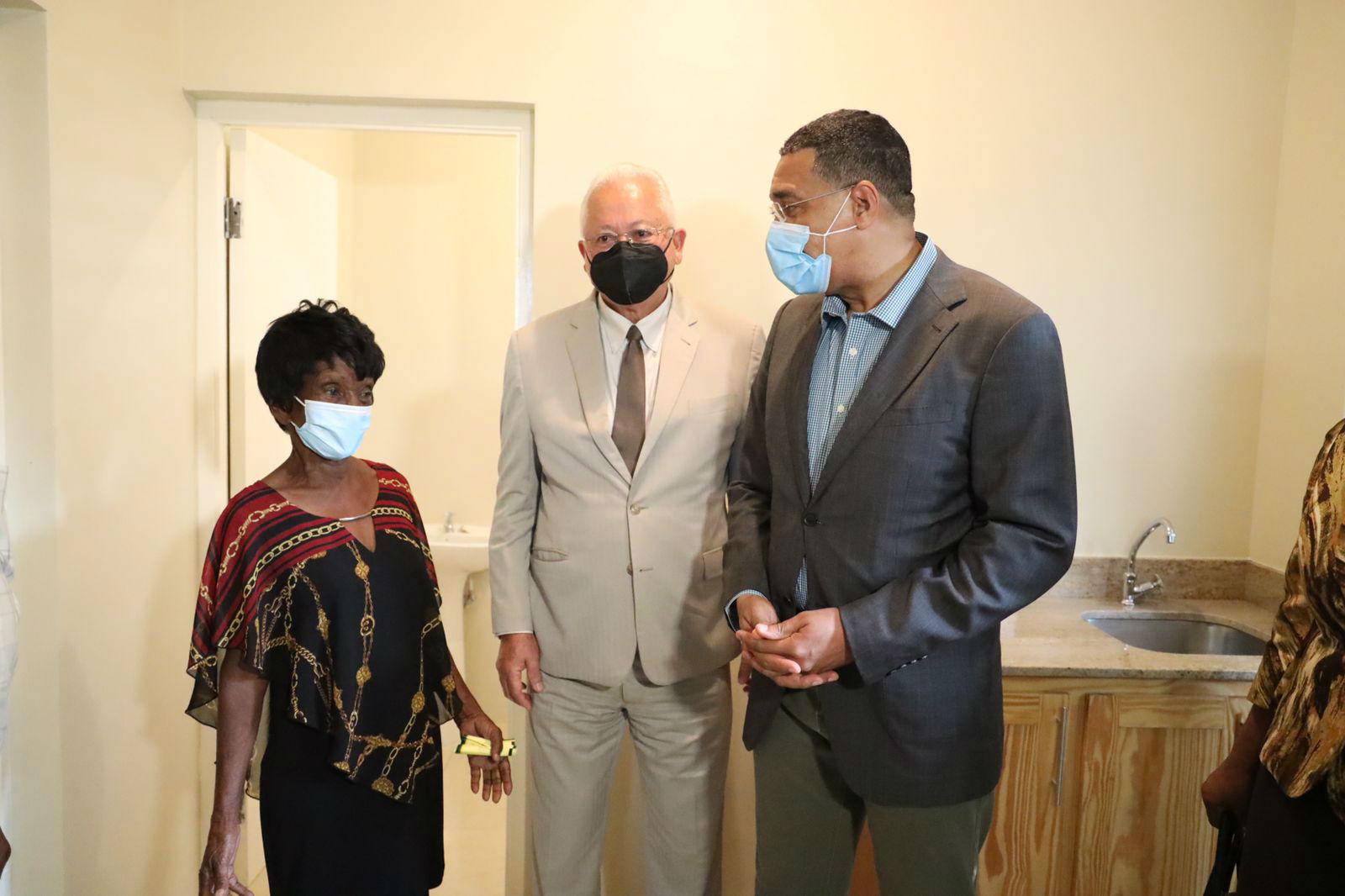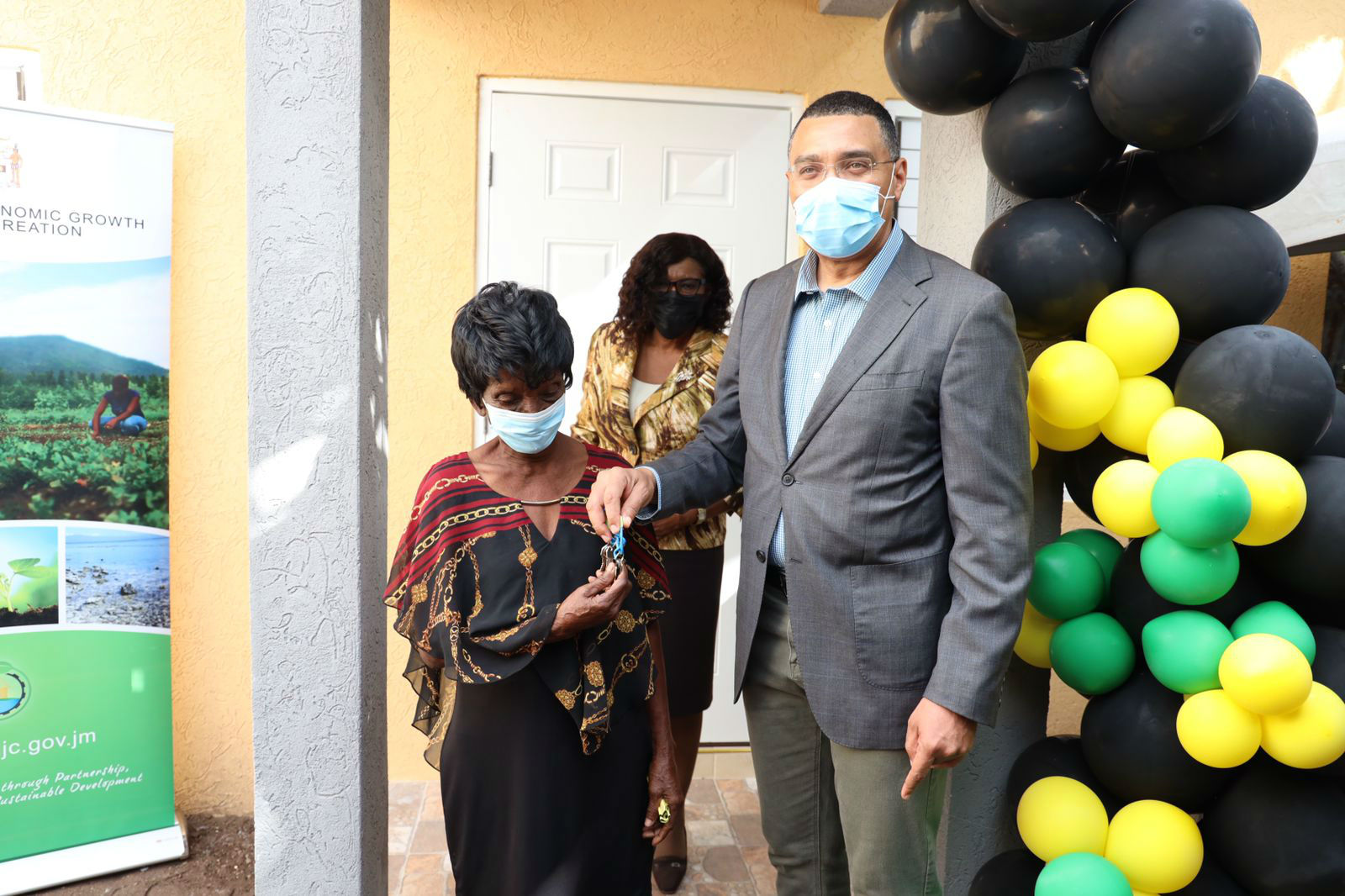Government Committed to Providing Reasonable and Decent Housing Solutions for Jamaicans
Prime Minister reiterates commitment as he discusses plans to upgrade former Olympic Gardens Police Station
Prime Minister Andrew Holness says the former Olympic Gardens Police Station is to be completely refurbished and upgraded to create a housing complex to be made available to beneficiaries in the constituency of West Central St. Andrew.
Noting that the complex will have 7 units, the Prime Minister says it will be completely overhauled with major work done to install new plumbing and electrical systems among other things. The Prime Minister also noted that two of the units are to be reserved; one for police officers who are attached to the constituency, and the other to be used as a type of community centre for the housing scheme.
In relation to police officers, the Prime Minister says, “There are police officers who reside out of town, and who may find it difficult to locate rentals in proximity to the Olympic Gardens Police Station; some may be working overtime hours and will need a place to stay.”
Prime Minister Holness says the upgrading and rehabilitation of existing facilities, represents another type of housing solution to add to Jamaica’s housing stock.
He also noted that the upgraded housing complex will allow for the smooth transition and resettlement of West Central St. Andrew residents who may have settled irregularly in other areas. The Prime Minister says the availability of a place to facilitate their relocation, will allow them to have peace of mind and certainty and enable the efficient development of informal communities.
Financing for the massive upgrading of the building which is located at the Bay Farm Villa Housing Scheme will be provided through the West Central St. Andrew Trust.
The Prime Minister says the Ministry of Housing and the National Land Agency, NLA, have been asked to facilitate the upgrading of the facility and to make it available to beneficiaries.
The Prime Minister says the upgrading will be costly, but that funds are being raised and support is being requested, with interest already being shown by persons who support this type of meaningful development.
Meanwhile, the Prime Minister reiterated the Government’s commitment to providing housing solutions to all Jamaicans; he said the Government is moving steadily towards the goal of providing 70,000 new housing solutions.
Prime Minister Holness says some of these solutions will be provided through a market mechanism, some through subsidies, some through public means, some through private and charitable means and some through the social housing mechanism to those who meet the criteria to obtain them.
The Prime Minister was speaking on Friday (February 4, 2022), during a tour of the former police station building.


